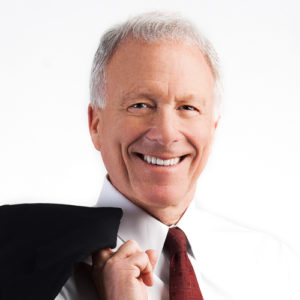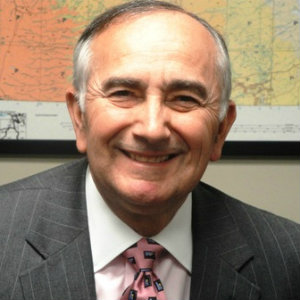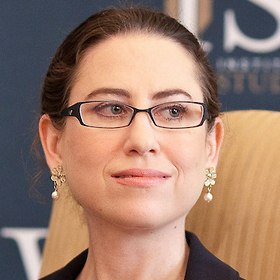The Iranian Challenge
Consider the strategic options for dealing with Iran’s nuclear program.
Summer 2012
Washington, DC
In the first half of 2011, an unprecedented wave of revolutionary fervor swept through the Arab world, catching everyone—Middle East rulers, Western statesmen, academic analysts, government intelligence officers, you name it—by surprise. The wave was as consequential as it was unexpected. It toppled Arab leaders who previously seemed impervious to opposition, and it discredited many of the basic concepts that had been guiding the policies of the United States government.
This two-week course will survey the upheaval in the Middle East, asking and seeking to answer a few simple questions: What was the Arab Spring? How has it, together with its aftermath, changed American priorities and strategies? What are the key challenges the United States is likely to face in the coming years?
While the Arab Spring is the starting point of our discussion, it is not our sole focus. We are deeply aware that this revolutionary wave struck while the United States was drawing down from Iraq and Afghanistan, locked in a prolonged contest with Iran, and frustrated by the lack of progress in Israeli-Palestinian negotiations. These issues will also command our attention. Our emphasis throughout will be on contemporary security dilemmas, but we will situate these within a broad context. Our approach is interdisciplinary—with readings drawn from policy practitioners, historians, journalists, intelligence officers, and political scientists.
Image: “You Will Pay for What you Done Mubarak” by Ramy Roof | Flickr, CC BY 2.0
Mike Doran on U.S. Security Policy in the Middle East

Michael Doran, an expert in U.S. policy toward the Middle East, radical Islam, and the Arab- Israeli conflict, is a Senior Fellow at the Hudson Institute in Washington, DC. He has also held a number of senior U.S. government posts related to Middle East policy and strategic communication.

Michael Doran is a Senior Fellow at the Hudson Institute in Washington, DC. He specializes in Middle East security issues.
In the administration of President George W. Bush, Doran served in the White House as a senior director in the National Security Council, where he was responsible for helping to devise and coordinate United States strategies on a variety of Middle East issues, including Arab-Israeli relations and U.S. efforts to contain Iran and Syria. He also served in the Bush administration as a senior advisor in the State Department and a deputy assistant secretary of defense in the Pentagon.
Before coming to Hudson, Doran was a Senior Fellow at the Brookings Institution. He has also held teaching positions at NYU, Princeton, and the University of Central Florida. He is the author of Pan-Arabism before Nasser, which analyzes the first Arab-Israeli war as an inter-Arab conflict, and Ike’s Gamble: America’s Rise to Dominance in the Middle East, about President Eisenhower and the Middle East. He appears frequently on television, and has published extensively in Foreign Affairs, The American Interest, Commentary, Mosaic Magazine, The Wall Street Journal, The Washington Post, and The New York Times.
Born in Kokomo, Indiana, Doran went to elementary school in Carmel, outside of Indianapolis, before his family moved to Fullerton, California, where he graduated from Sunny Hills High School. He received a B.A. from Stanford and an M.A. and Ph.D. in Near Eastern Studies from Princeton.
Readings:
Discussion Questions:
Readings:
Discussion Questions:
Readings:
Discussion Questions:
Readings:
Discussion Questions:
Readings:
Discussion Questions:
Readings:
Discussion Questions:
Readings:
Discussion Questions:
Readings:
Discussion Questions:
Readings:
Discussion Questions:

Michael Doran
Michael Doran, an expert in U.S. policy toward the Middle East, radical Islam, and the Arab- Israeli conflict, is a Senior Fellow at the Hudson Institute in Washington, DC. He has also held a number of senior U.S. government posts related to Middle East policy and strategic communication.

Lewis Libby
Lewis Libby is Senior Vice President of Hudson Institute. Before joining Hudson, Libby held several high level positions in the federal government related to his current work on national security and homeland security affairs.

Paul Wolfowitz
Paul Wolfowitz is a scholar at the American Enterprise Institute. He spent more than three decades in public service and higher education. Most recently, he served as president of the World Bank and deputy secretary of defense.

John R. Allen
John R. Allen is President of the Brookings Institution and a retired U.S. Marine Corps four-star general. He previously served as commander of the International Security Assistance Force in Afghanistan and special presidential envoy to the Global Coalition to Counter ISIL.

James M. Dubik
LTG James M. Dubik (U.S. Army, Ret.) is a Senior Fellow at the Institute for the Study of War and a Professor at Georgetown University’s Security Studies Program. General Dubik has extensive operational experience in Iraq, Afghanistan, Japan, Korea, Thailand, Bosnia, Haiti, Panama, and in many NATO countries.

Frederick W. Kagan
Frederick W. Kagan is a Senior Instructor with the Hertog War Studies Program at the Institute for the Study of War. The author of the 2007 report “Choosing Victory: A Plan for Success in Iraq,” he is one of the intellectual architects of the successful “surge” strategy in Iraq. He is the director of AEI’s Critical Threats Project.

Kimberly Kagan
Kimberly Kagan is a Senior Instructor with the Hertog War Studies Program and founder and president of the Institute for the Study of War. She is a military historian who has taught at the U.S. Military Academy at West Point, Yale, Georgetown, and American University.

Vance Serchuk
Vance Serchuk is Executive Director of the KKR Global Institute and an Adjunct Senior Fellow at the Center for a New American Security. Prior to joining KKR, Mr. Serchuk served for six years as the senior national security advisor to Senator Joseph Lieberman (I-Connecticut).
Ray Takeyh
Ray Takeyh is Hasib J. Sabbagh senior fellow for Middle East studies at the Council on Foreign Relations (CFR). His areas of specialization are Iran, political reform in the Middle East, and Islamist movements and parties. Prior to joining CFR, Takeyh was senior advisor on Iran at the Department of State.